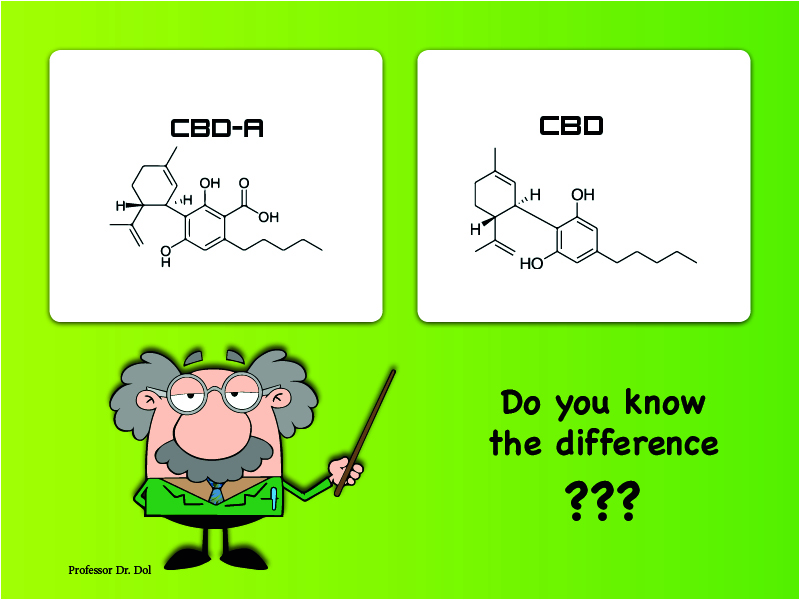- Empty cart.
- Continue Shopping
CBD or CBD-A and what is the difference?

With CBD news reaching fever pitch within the United Kingdom and worldwide with the revelation that you can help yourself in a way you could never before do in an ethical and natural manner. But there is a lot of information to take on board when delving into the world of CBD and your endocannibinoid system, for instance you will be seeing a lot more of another compound apart from CBD and that is CBDa and while it comes from the hemp plant the two cannibinoids are very different.
Both varieties are cannabinoids, unique compounds formed within cannabis or hemp plants with CBD being noted as the most promising in regards to medical properties and more research has been done into this with CBDa research not getting half as much traction in the medical research industry. It has however surged onto the scene having been made famous by juice heads juicing raw cannabis and has been getting more and more air time in regards to the properties it has. However many people are still unsure of the difference between the two.
Understanding both types of cannabinoid compounds is very important and what these compounds are in relation to each other. CBDA is what’s known as the acidic precursor to the better known CBD. This is a result of the hemp or cannabis plants growth characteristics and produces THCA & CBDA not CBD or THC like you would imagine it would. These natural cannabinoids found in their acidic form are often seen as being ‘inactive’ so it was thought to have little benefit. When cannabis or hemp is heated, such as through smoking, cooking, or vaporization, a process known as decarboxylation occurs. Decarboxylation turns both THCA and CBDA into THC and CBD respectively. Both CBDA and CBD are non-psychoactive, meaning they won’t get you high and no feeling of being stoned is present when using such compounds.
So with CBDa being seen as being inactive less research was conducted and as such CBD properties became the dominant compound of choice due to it being active. There is still currently only a little research into the properties of CBDA compared to CBD, but what research and scientific investigation has been done has found potentially beneficial properties of epic proportions. For example, it is thought to have both anti-inflammatory and anti-proliferative traits, as well as a few others that can be very beneficial to modern day living.
So while the research into CBDA continues, science has done a far more in depth set of investigations into CBD and has found it to be very promising and as far as the scientific community is concerned, much more promising in terms of positive potential. CBD too has anti-inflammatory and anti-proliferative effects, as well as many more that are still being discovered, that have all been studied in greater detail. This is not to say that CBDA does not have potential, but according to research the potential is greater for CBD.
Scientist in the field of cannabinoid research have found that THC and CBD appeared to inhibit and kill cancer cells. But when compared to CBD, CBDA had negligible effects in cell viability against multiple cancers therefore research continued in greater depth into CBD above CBDa.
In conclusion both CBD and CBDA have very similar properties (one is the precursor to the other), but as things stand, CBD is the compound of choice – and the research reflects that but as more and more investigation are done into hemp, you may be surprised to find out that not only CBD & CBDa are the only beneficial compounds to be found within the hemp plant and actually hemp and cannabis have long been the cure to many of life’s ailments which until recently has been suppressed by the mainstream.
Legal Notice:
This is a genaric information about CBD. We make no claims about our CBD Products, which are sold purely as food supplements, and are not intended or claimed to diagnose or cure disease, or to restore biological functions.



